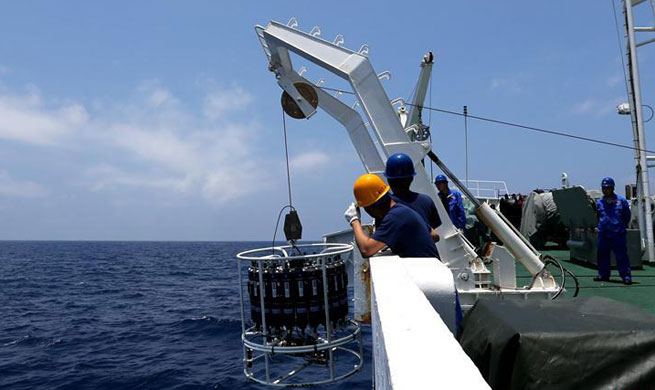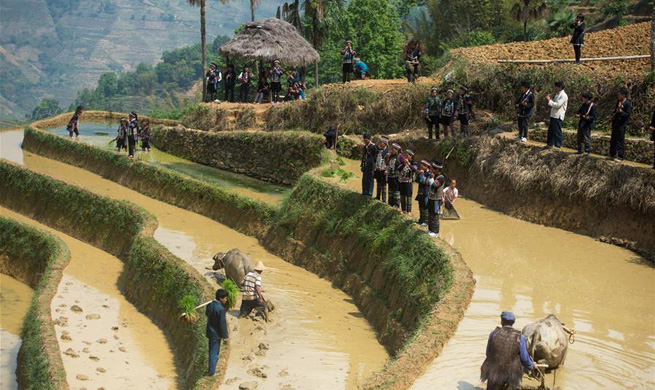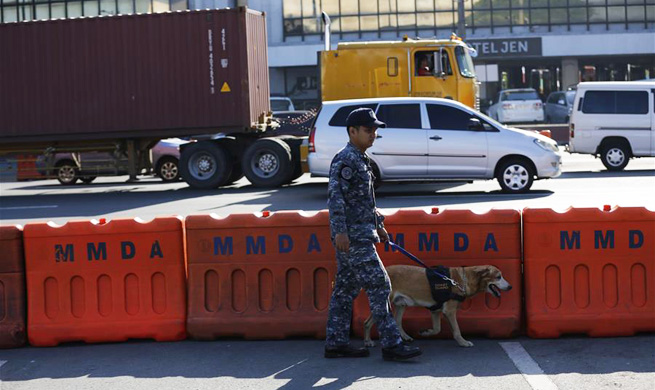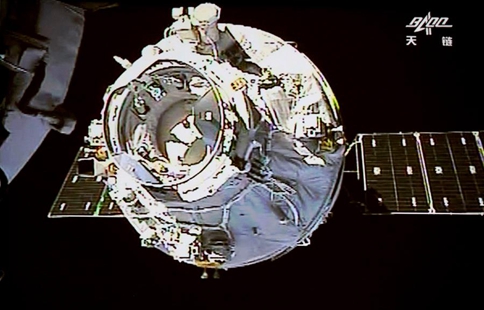JUBA, April 26 (Xinhua) -- The body tasked with monitoring South Sudan's peace agreement warned on Wednesday that increasing hunger crisis and escalation in violence have undermined all efforts to make peace in the war-torn East African nation.
Festus Mogae, Chairperson of the Joint Monitoring and Evaluation Commission (JMEC) said that South Sudan now faces crisis within crisis amid rising prices of basic items, criminality, violence and businesses shutting down.
"There can be no doubt that we now face a crisis within a crisis. Security is the foundation stone upon which we build economic and social confidence," Mogae told a meeting of stakeholders in Juba.
"This foundation stone no longer exists, confidence has evaporated, commerce is seizing up, prices are escalating and as a result we now face a crisis of hunger that is undermining all our efforts to make peace," he added.
"The mothers of South Sudan face a daily struggle with inflation, never knowing if the money in their pocket will be sufficient to feed their family. Insecurity creates food shortages, which in turn drives inflation that in turn results in hunger. A hungry man is an angry man, and angry men do not make peace," the former president of Botswana added.
Mogae warned that central structures of command and control among the several armed groups across South Sudan appear to have broken down and this would lead to further bloodshed and suffering.
"Violence and conflict on this level is either centrally directed or locally orchestrated. I fear it is now time to acknowledge that, across the board, among all armed forces and armed groups, central structures of command and control appear to have broken down. Violence around the country is increasingly based on local decisions taken at local level," Mogae said.
"Armed groups may declare an allegiance to one leader or another, but they seem no longer to take their instructions from them,"he added.
Mogae called on the warring parties to immediately cease hostilities, put collective efforts to stabilize the skyrocketing inflation, protect international humanitarian law and allow unhindered access movement of relief supplies to communities facing starvation.
"Food shortages and increasing hunger are now our immediate problems. Out in the country, beyond the reach of government, the situation is increasingly desperate. Instability and hunger has created a surge of survival-criminality that further exacerbates the problem through stealing, looting and the prevention of free-flowing commerce," Mogae noted.
"I can only repeat that this humanitarian situation is predominantly man-made and the result of violence, conflict and the deliberate denial of access. Men, women and children are suffering and dying of starvation because the leadership at various levels is failing to prevent it," he appealed.
South Sudan has been embroiled in more than three years of conflict that has have taken a devastating toll on the people.
A peace deal signed in August 2015 between the rival leaders under UN pressure led to the establishment of a transitional unity government in April, but was shattered by renewed fighting in July 2016.
The UN estimates that 1.5 million people have been forced into neighboring countries and another 7.5 million people across the country are in need of humanitarian assistance and protection, and a localized famine declared in February in parts of northern unity state.

















